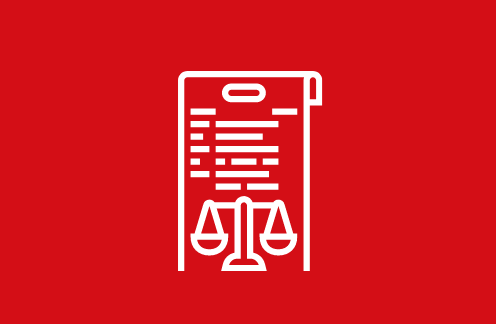
Corporate Sustainability Due Diligence: EU legislators reach landmark political agreement but more is needed to guarantee workers’ rights
Early this morning, the European Parliament and the Council of the European Union (EU) reached an agreement on the Corporate Sustainability Due Diligence Directive (CSDDD).
Clean Clothes Campaign’s reaction to European Parliament’s voteThis landmark law, first proposed by the European Commission in 2022, was hailed by civil society, trade unions and consumers as a unique opportunity to tackle systemic human rights and environmental abuses in global value chains.
While the agreement reached last night represents a first step to change irresponsible corporate behaviour and protect rightsholders globally, it leaves open gaps that fall short of its initial ambition.
New obligations for companies to end human rights abuses
The text introduces strong mandatory human rights and environmental due diligence obligations for large companies to identify, assess, end, or mitigate and remedy harm they have caused or have contributed to in their value chains. This will apply to foreign and EU companies, their subsidiaries, and their business relationships.
The due diligence obligations are mostly in line with international standards of the United Nations, ILO and OECD, and include strong provisions for stakeholder engagement, including trade unions. This is an improvement over the initial proposal. Where the text differs from international soft law is in the range of rights covered. Importantly, the ILO fundamental Conventions on principles and rights at work made the cut. However Member States refused at this stage to include the Convention on Occupational Safety and Health and its related promotional framework, even though the ILO Governing Body recognised these instruments as fundamental in June 2022.
“This agreement represents a landmark moment for brands and companies in the garment sector. They will have to reckon with their responsibility for abuses of workers’ rights to a living wage and income or to freedom of association, “ said Muriel Treibich, Lobby and Advocacy Coordinator at the Clean Clothes Campaign International Office. “We now have a European framework, which is more ambitious than similar national laws, to guarantee rights and justice for workers in the garment and footwear sector”.
Enforcement and rights of victims
The text also introduces monetary sanctions based on turnover for companies which fail to comply with their new obligations, as well as a network of competent authorities in Member States that will be able to receive complaints from rightsholders.
Aggrieved workers will also be able to sue companies under the new civil liability regime when they are subject to harm as a result of a due diligence failure. “This opens new avenues for justice for those affected,“ according to Giuseppe Cioffo, also from the CCC International Office. “It is positive that some of the Parliament’s access to justice measures made it into the final text. Yet, we are worried by the restriction to abuses to collective rights put forward by the Council“.
While policymakers announced a deal this morning, much remains unclear as with regards to the details of the agreement. Once a final text is published, both the Council of the EU and the European Parliament will have to formally approve it over the next months.
Clean Clothes Campaign will continue to engage with the process to ensure that garment workers’ rights remain at the top of the political agenda.
For more information:
Giuseppe Cioffo, Clean Clothes Campaign: giuseppe@cleanclothes.org; +32 456 72 15 90
Muriel Treibich, Clean Clothes Campaign: muriel@cleanclothes.org; +32 471 64 09 34
Notes to editors:
CCC position paper on the need for human rights due diligence in the garment industry
Open letter on the need for a human rights centred CSDDD
Clean Clothes Campaign’s reaction to European Parliament’s vote